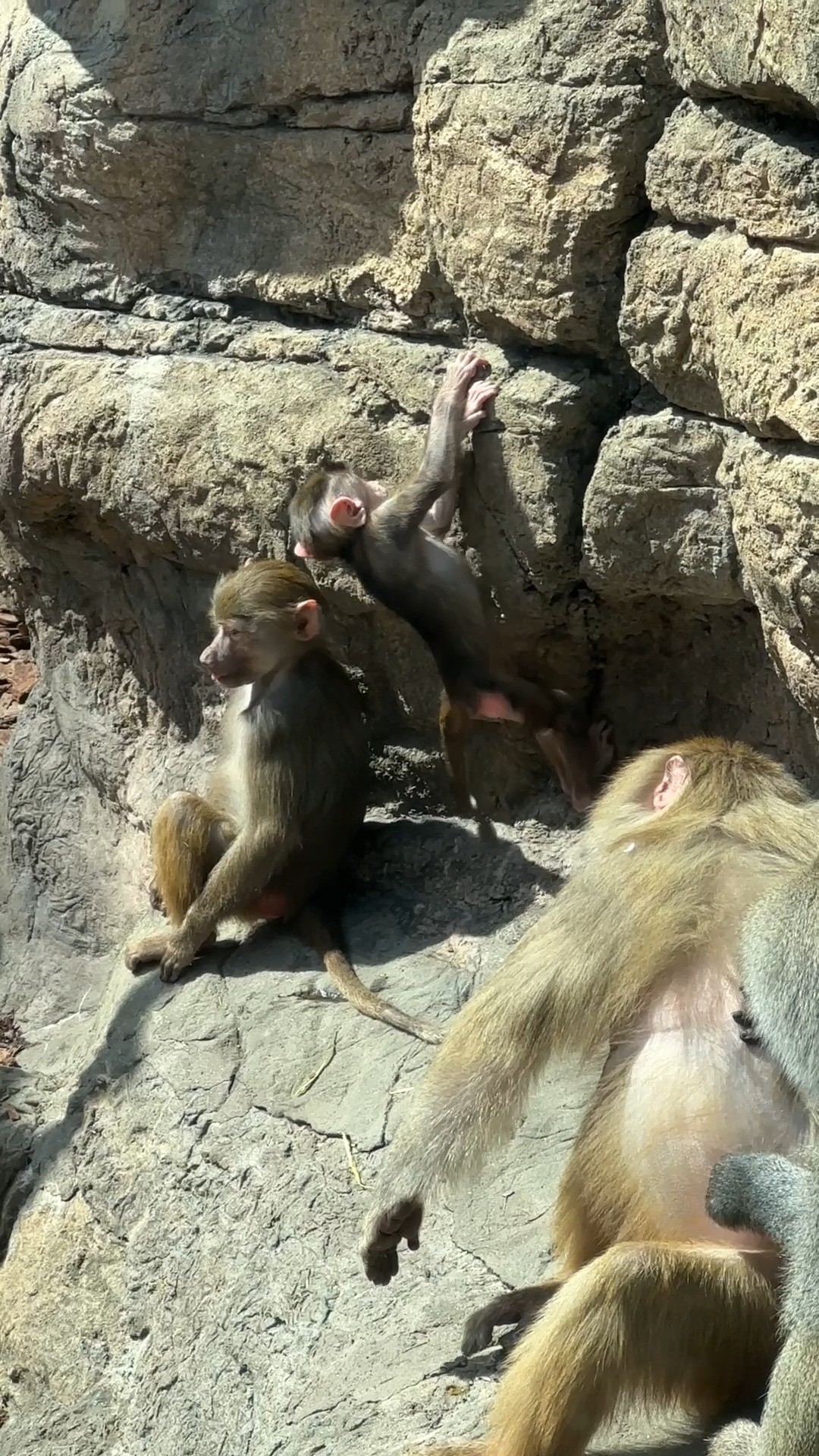- Insight into the social behavior and curiosity-driven activities of young Hamadryas baboons at the Prospect Park Zoo.
- The role of the Association of Zoos and Aquariums (AZA) in managing and conserving species through cooperative programs.
- Details about the Species Survival Plan Programs and their importance in maintaining healthy populations of endangered species.
- Explanation of Prospect Park Zoo’s participation in these programs and its efforts in captive breeding and conservation.
- Educational aspects of species conservation, zoology, and environmental stewardship highlighted through the baboons’ story.
Our young Hamadryas baboon siblings at the Prospect Park Zoo embody the essence of curiosity and social interaction, captivating zoo visitors with their playful antics. Often seen climbing, play wrestling, and exploring their surroundings, these baboons serve as an educational illustration of primate behavior and social structures. Their tireless curiosity offers a glimpse into the dynamic world of primatology and the efforts being made to conserve their populations.
Hamadryas baboons, known for their complex social hierarchies, reside in troops led by a dominant male, with multiple females and their offspring. Watching our baboon siblings interact provides real-time insights into these social dynamics. The young baboons, with their explorative nature, contribute significantly to understanding the adaptive behaviors of primates. They engage in activities that teach them vital skills, improve their physical fitness, and help cement social bonds. This behavior is not only a joy to observe but also a crucial facet of their development and survival.
The Prospect Park Zoo, an esteemed member of the Association of Zoos and Aquariums (AZA), plays a vital role in advancing the cause of wildlife conservation and education. As part of the AZA, the zoo adheres to strict standards of animal welfare, conservation, education, and research. Among its many initiatives, the zoo’s participation in the AZA’s Species Survival Plan Programs highlights its commitment to preserving endangered species like the Hamadryas baboons.
These cooperative programs are vital in maintaining genetically diverse, self-sustaining populations of multiple species. They involve meticulous coordination of breeding efforts across various zoos, ensuring that animal populations remain healthy and viable. The Species Survival Plan Programs represent a proactive approach to conservation, addressing the challenges of habitat loss, poaching, and environmental changes that endanger species worldwide. These efforts are not standalone; they engage multiple stakeholders, including scientists, educators, and the general public, to support conservation on a global scale.
Prospect Park Zoo’s involvement in these programs exemplifies its dedication to conservation and education. Through its work, the zoo provides visitors not just with a chance to witness diverse wildlife but also to learn about the ecological issues facing these species. The zoo’s emphasis on conservation and education fosters a deeper appreciation of biodiversity and encourages positive actions toward environmental stewardship. By presenting animals like the Hamadryas baboons in engaging and informative ways, the zoo inspires visitors to contribute to conservation efforts in their capacities.
In educating visitors about these programs, the zoo emphasizes the interconnectedness of animal welfare and environmental conservation. The Hamadryas baboons serve as ambassadors for their species, showcasing the combination of scientific research and conservation action required to protect them. Programs like these demonstrate that zoos are not merely places for public entertainment but critical institutions for species preservation and ecological research.
Efforts to conserve the Hamadryas baboons and other species extend beyond the confines of zoos. They involve international collaborations and rigorous scientific methodologies to address the complex issues of biodiversity loss. Through captive breeding programs, habitat restoration projects, and public education campaigns, the future of many endangered species is being safeguarded. The success of these initiatives relies heavily on a committed and informed public, making the role of educational institutions like zoos even more crucial.
The Prospect Park Zoo’s achievement in managing and breeding Hamadryas baboons reflects the broader goals of zoology and conservation. It represents a commitment to fostering understanding and respect for all living creatures, a commitment that is essential for promoting sustainability and protecting our planet’s natural resources. By understanding the efforts involved in conserving species, individuals become more aware of their ecological footprint and are better equipped to make informed decisions about environmental issues.
Our young Hamadryas baboon siblings are part of this larger narrative, embodying the playful energy that often ignites interest and concern for conservation efforts. Watching them play and interact is a reminder of the beauty and intricacy of life on Earth. These baboons, along with the efforts of institutions like the Prospect Park Zoo, highlight the urgent need for cooperation in conserving biodiversity and ensuring a healthier future for generations to come. Through engagement, education, and action, species like the Hamadryas baboons can thrive, symbolizing hope and resilience in the face of environmental challenges.
*****
Source Description
Our young Hamadryas baboon siblings are endlessly curious and can often be seen climbing, play wrestling, and exploring their habitat together!
As an Association of Zoos and Aquariums (AZA) zoo, Prospect Park Zoo participates in AZA Species Survival Plan Programs – cooperative animal management, breeding, and conservation efforts that works to ensure genetically diverse, self-sustaining populations of hundreds of species of animals, including Hamadryas baboons.


